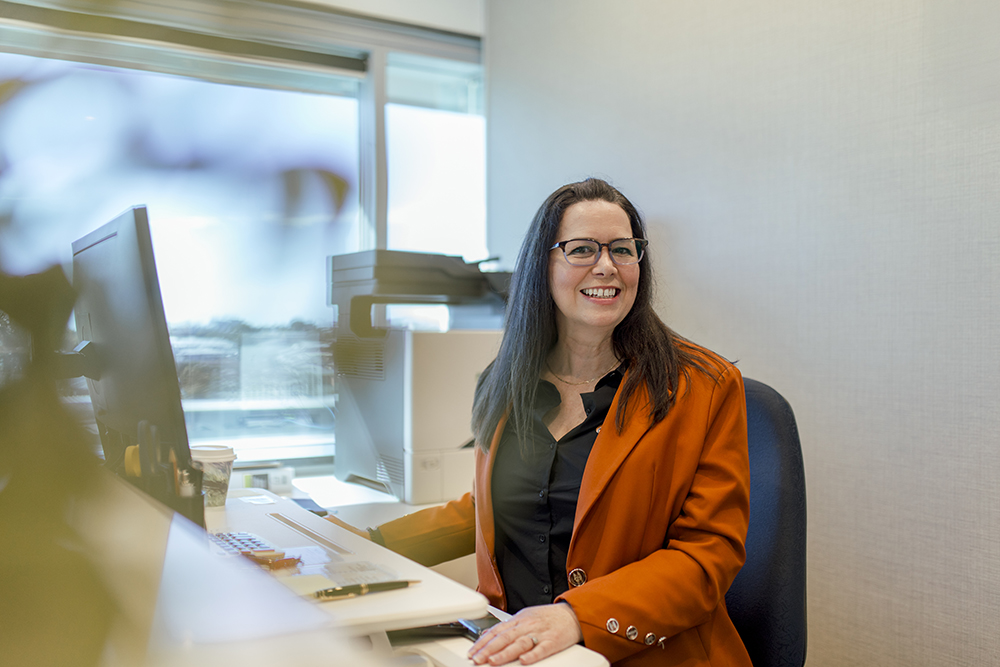What to do when you’re worried about weight regain

Weight regain following bariatric surgery is very common. It can be extremely discouraging and demoralising, but it’s not unavoidable or irreversible.
Most commonly, weight regain is caused by hard to break dietary habits, such as grazing, binge eating, or continuing to eat past the point where you feel full. This can stretch your stomach pouch slightly over time, reducing the restriction and sense of ‘fullness’ after eating.
Other common contributing factors include:
- Depression, anxiety, eating disorders, and other mental health conditions which may affect your eating habits and energy levels
- Not carefully following dietary recommendations on portion sizes and which foods to prioritise or avoid
- Reduced exercise
- Change in regular medications and/or dosages.
Beyond the first year, it is easy to slip and become less diligent about your newly acquired habits. While it’s unreasonable to expect you to maintain the same hyper-awareness that would typically be seen in the months immediately following your procedure, there are some key eating behaviours to watch out for and avoid to minimise the potential for, and extent of, weight regain.
Grazing
This is when you pick at small portions of food over an extended period of time. Eating this way makes it far easier to consume extra calories without encountering the ‘full’ feeling in your stomach that tells you when to stop eating.
Irregular eating patterns
Chaotic eating patterns and skipped meals can impact your metabolism, making it easier for you to gain weight and harder for you to lose it. It also tends to lead to overeating, late-night eating, and unhealthy food choices later due to increased hunger.
Excessive portions
Continuing to eat past the point where you are full often leads to consuming excess calories, and can occasionally cause a loss or lessening of the restrictive feeling which tells you when to stop eating. This makes it a lot harder to intuit portion sizes, and therefore makes it easier for you to continue to overeat. It’s an unfortunate self-sustaining cycle.
What can be done?
The first step is to identify and address any contributing negative habits.
We recommend you book an appointment with a bariatric dietitian to discuss your weight regain, especially in the early stages, as their advice is invaluable in reversing this without additional surgical or medicinal intervention.
Suraya Nikwan, dietitian, nutritionist, and owner of Simple and Easy Nutrition, has an excellent podcast on the topic, which is available for free on all podcasting platforms. Catch it on Spotify here or search Reverse the Post-Op Regain wherever you get your podcasts.
A bariatric psychologist can delve deeper into the underlying causes of these habits and the steps you can take to overcome them, though waitlists to book in with psychologist can be prohibitive.
Alternatively, our allied health coach, Dalton Franke, has a course, Revive and Thrive: A Tailored Journey Beyond Bariatric Surgery, in which he incorporates his psychological knowledge into his teaching to ensure you are learning lifelong skills which can be applied in your every day life. He goes into further detail about common negative dietary habits, the effects these have, and how to overcome them. This is a good option for those who would prefer a one-off payment to smaller recurring payments for appointments, to learn these skills from home at your own pace, or to skip the psychologist waitlist.
You can also book in for an appointment to discuss your weight regain with Dr Greenslade directly. Dr Greenslade may refer you for pharmacological or endoscopic treatment, or you may be offered a surgical solution such as a conversion from a sleeve gastrectomy to a gastric bypass, or (less commonly) revisional surgery, at his discretion.
It is important to manage your expectations. Bariatric surgery is, unfortunately, not a magic fix-all; it’s a tool. It will certainly make things easier, but you’ll still have to work to maintain a healthy diet and stay active to keep the excess weight off. Weight loss surgery will not necessarily cancel out all of the underlying issues which contribute to obesity, such as fast food being significantly cheaper and easier to access than a balanced home-cooked meal, a lack of comprehensive publicly-funded health and dietary education, and a deluge of snacks designed to be as addictive and eye-catching as possible on every shelf.
Ultimately, the obesogenic environment we live in is working against you, and lacking a sweeping systemic and cultural shift, the best way to maintain a healthy, comfortable weight is through careful consideration of your eating habits, portion sizes, and food choices.
Subscribe to Insights & Advice
Stay informed and supported on your journey with expert insights, practical tips, and the latest clinic updates straight to your inbox.
Start your weight loss journey with Brisbane Bariatric Centre today
If you’re thinking about weight loss surgery or just want to know what’s possible, we’re here to help. Get in touch to book a chat with Dr Justin Greenslade and find out what’s right for you.



